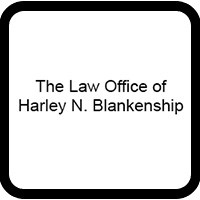Lincolnshire Divorce & Family Law Lawyer, Kentucky
Harley N. Blankenship
✓ VERIFIEDAccident & Injury, Criminal, Divorce & Family Law, Estate, Real Estate
Harley Blankenship is a practicing lawyer in Louisville, KY after being admitted to the Kentucky Bar in 1970. He received his Juris Doctor in 1970 fro... (more)
FREE CONSULTATION
CONTACTValerie Weis Herbert
Animal Bite, Criminal, Bad Faith Insurance, Child Support
Status: In Good Standing
FREE CONSULTATION
CONTACTRobert W. Riley
Bankruptcy, Family Law, Medical Malpractice, Personal Injury
Status: In Good Standing
FREE CONSULTATION
CONTACTKenneth J. Henry
Accident & Injury, Divorce & Family Law, Bankruptcy, Civil & Human Rights, Education
Status: In Good Standing Licensed: 21 Years
FREE CONSULTATION
CONTACTNolia Gayle Batey
Accident & Injury, Car Accident, Personal Injury, Slip & Fall Accident, Divorce & Family Law
Status: In Good Standing Licensed: 9 Years
Christopher M Harrell
Child Custody, Custody & Visitation, Divorce, Divorce & Family Law
Status: In Good Standing Licensed: 32 Years
FREE CONSULTATION
CONTACTRobert L. Heleringer
Accident & Injury, Estate, Divorce & Family Law, Criminal, Lawsuit & Dispute
Status: In Good Standing
Scott E. Powell
Divorce & Family Law, Personal Injury, Medical Malpractice, Accident & Injury
Status: In Good Standing Licensed: 17 Years


